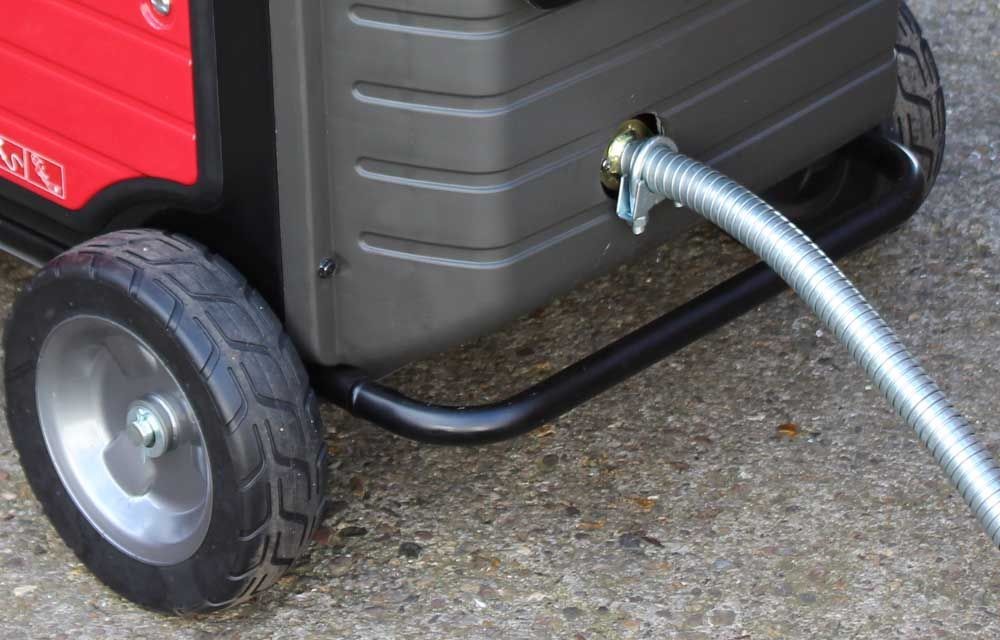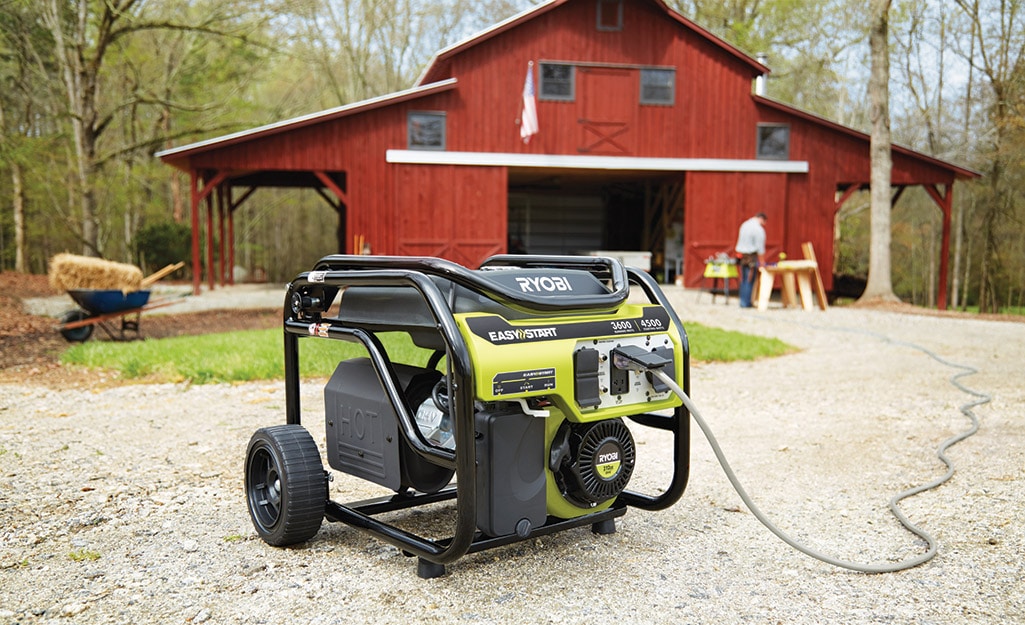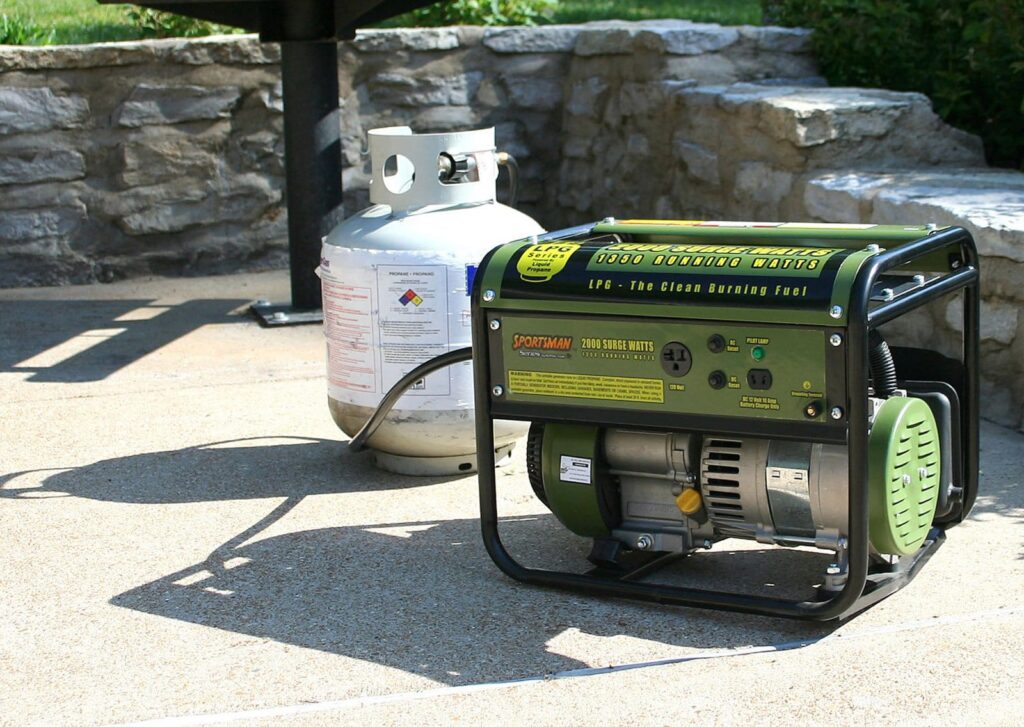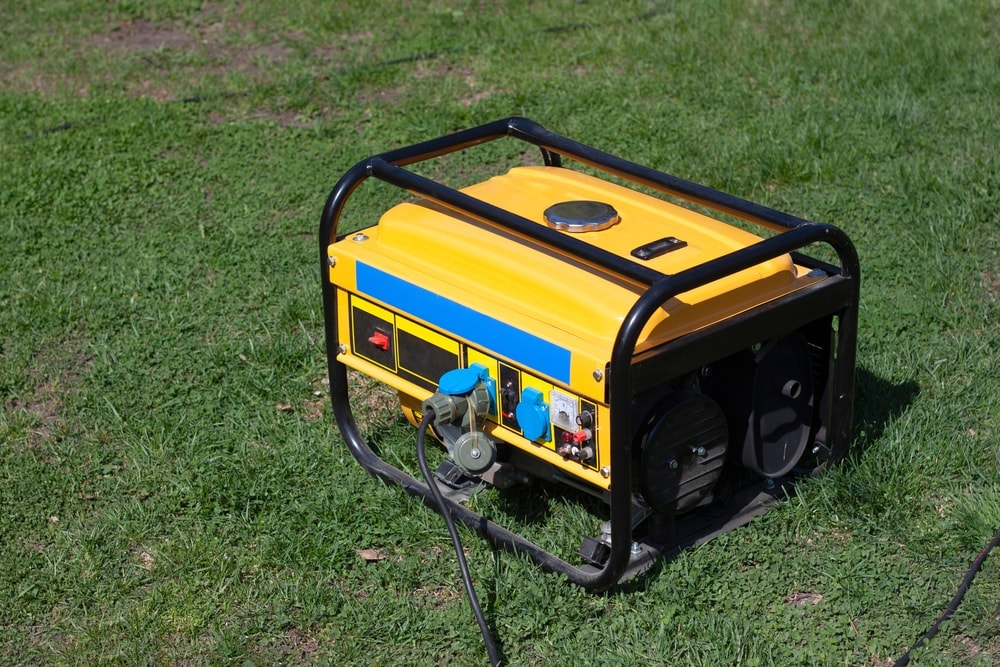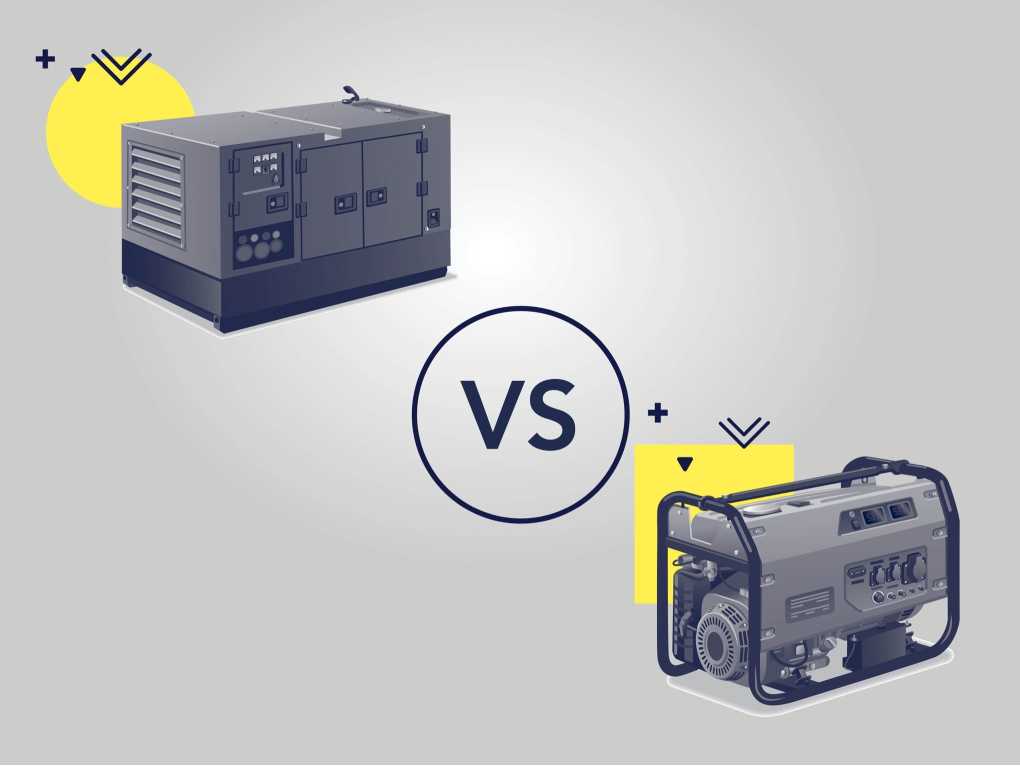As technology advances, green energy becomes accessible and electric generators that use renewable energies like solar power are becoming popular.
More people, organizations, and countries are investing in green energy because it’s reliable, safer to produce, cleaner, and more environmentally-friendly than most available energy sources. One of the products designed to take advantage of the benefits of solar power is the solar generator. But what is a solar generator?
A solar generator is the same as a conventional generator, that is, a portable power supply system. The difference however is that solar generators use, instead of gasoline or diesel, solar panels to capture energy from the sun. This energy can be used directly or stored in a battery. The stored power will then be available when needed, such as in the case of a blackout or a place without access to the electricity grid (mountainside, on a boat, etc.)
In this article, we’ll explain what this technology is, how it works, and what its benefits and downsides are.
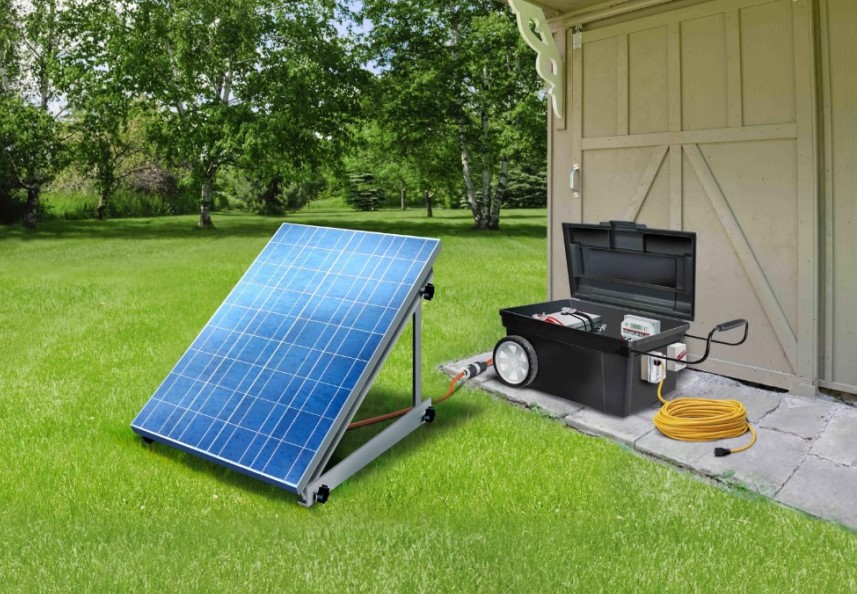
With the human technological development and the creation of the solar energy generator, today, millions of people worldwide are already able to generate their electric energy sustainably and still save on the electricity bill.
Today, there are plenty of more or less powerful solar generators on the market, from the Ecoflow Delta with its whopping 3,000 surge and 1,800 rated watts, to the more compact and portable Jackery Explorer 500, and more.
The solar energy generator, or photovoltaic system, has two main types: the generator systems connected to the grid (On-Grid) and the isolated, or autonomous generator systems (Off-Grid). Below, we explain how each photovoltaic system works:
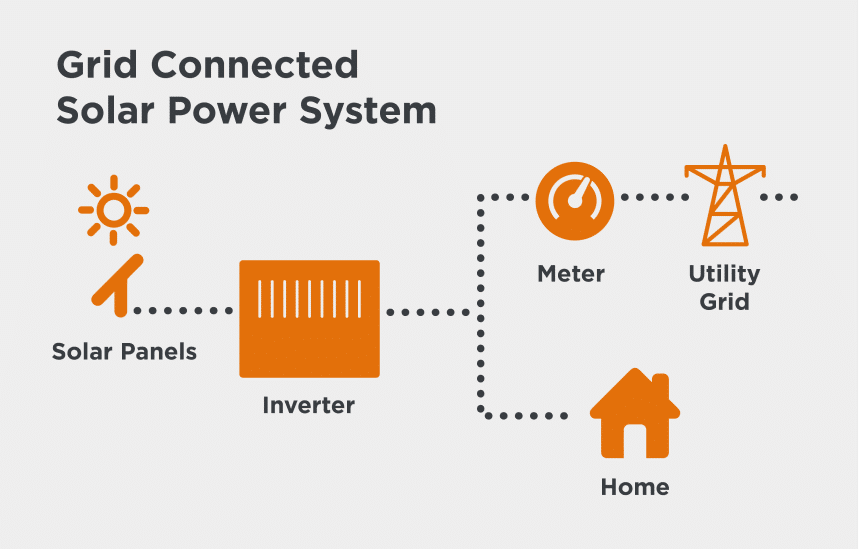
This energy is then sent to the interactive inverter, which transforms it into alternating current and then sends it to the power board to supply to residences, companies, and organizations.
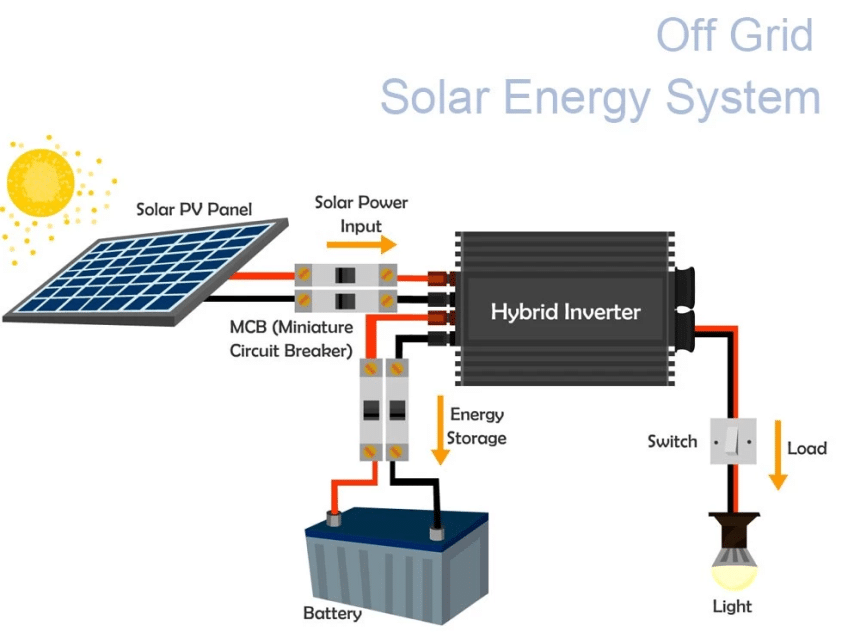
In these systems, all the energy consumed comes from the batteries. The power generated by the solar panels is used to charge these batteries. These are not one or two, but a battery bank with several of them, necessary to account for the consumption of a house or company.
No, there is no difference. The name solar generator, portable inverter generator, or solar power station, can be used interchangeably, especially when you’re trying to shop online.
The first point that we must clarify is that solar energy generators do not generate solar energy, but uses it to generate another type of energy, which can be thermal or electrical. A solar generator does not “generate” energy – as gasoline generators do – but rather stores it in advance and then makes it available to you.
A solar generator manages the solar energy captured by solar panels and stores it in batteries. The stored electrical energy can be used later through a current inverter that is already integrated into the most advanced portable solar generators.
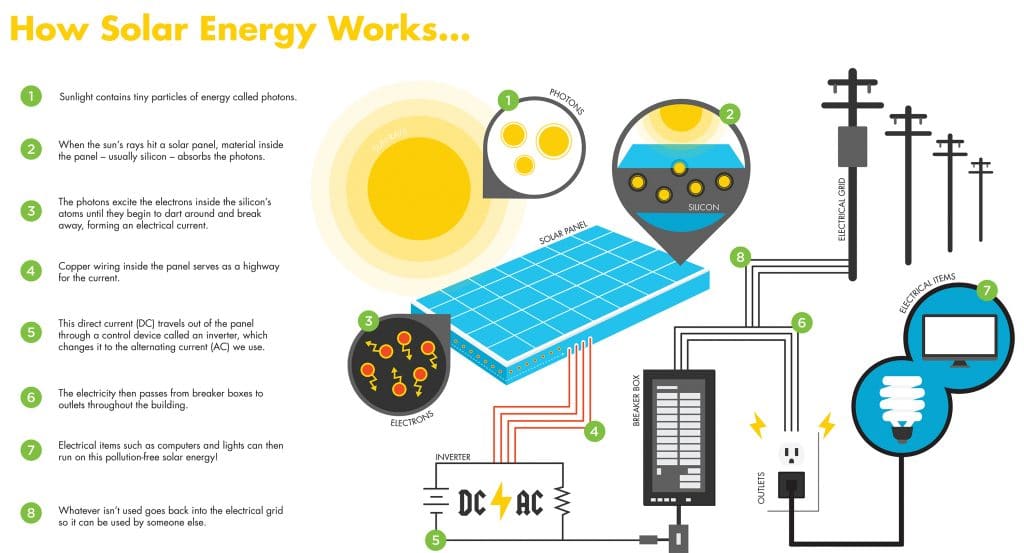 How powerful a solar generator can be?
How powerful a solar generator can be?This depends on the type of solar generator. Portable solar generators have power outputs of around 100 watts to 3,500 watts or more, enough for camping use or as a backup for powering small devices at home. Meanwhile, off-grid systems are not as portable and have a total system watt capacity of around 20 watts to around 3,500 watts or more. On-grid systems are however very powerful and can power houses or commercial facilities.
Photovoltaic technology, thanks to its modular character, that is, composed of modules that can be scaled to generate and supply any consumer demand. They can be used in homes, companies, and even large industries.
Because it represents the largest share of consumer units in the world, the home solar energy generator is the fastest-growing type. Regardless of size, be it a large or small house, the system can be dimensioned to supply all your power consumption.
To supply the consumption of a common residence, a solar energy generator will hardly need to be greater than 10 kWp (kilowatt peak), that is, the maximum amount of energy generated in the best conditions of solar radiation.
A house with 3 bedrooms, for example, can have its consumption demand easily covered through a 3 kWp system, which will occupy an average roof area of 21 m².
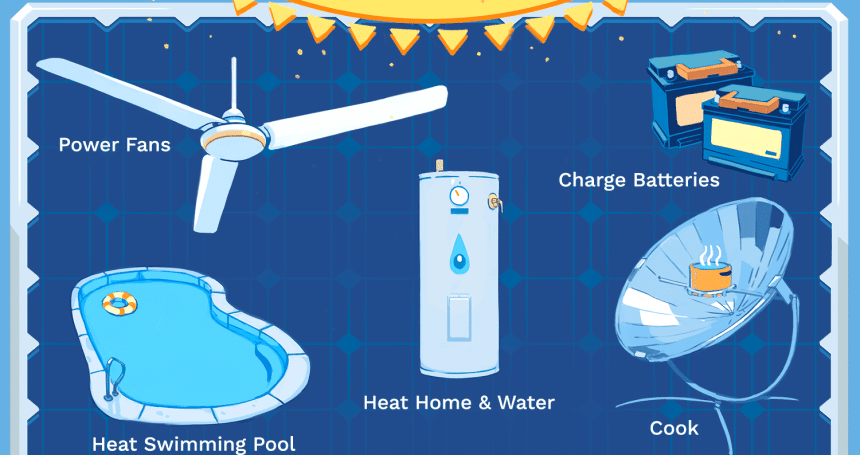 For commercial uses
For commercial usesLarge consumers of electricity, companies are also investing in solar energy generators. The profitability of these systems is usually higher for these types of customers.
This is because there are gains in scale, such as in the cost of inverters, labor, and design, which are more diluted with larger systems.
Commercial systems, generally, have installed power between 10 kWp to 100 kWp, with the set of modules, or photovoltaic panels, occupying an area of 65 m² to 700 m².
To generate the large amounts of energy consumed in industrial establishments, the systems need to be large, sometimes with hundreds of modules. With installed power between 100 kWp to 1000 kWp, these systems usually occupy an area between 650 m² to 7,000 m².
As we have seen, a solar generator can not only power a whole house. It can be used to power residences, companies, and industries. A typical homeowner however will need around 28 to 34 solar panels for covering 100% of their energy use.
To run a generator, several components are required. These include:
This is probably the most important component in a solar installation. Without this, there is no solar power generation. It collects energy from the sun and sends it to the controller through the wiring system.
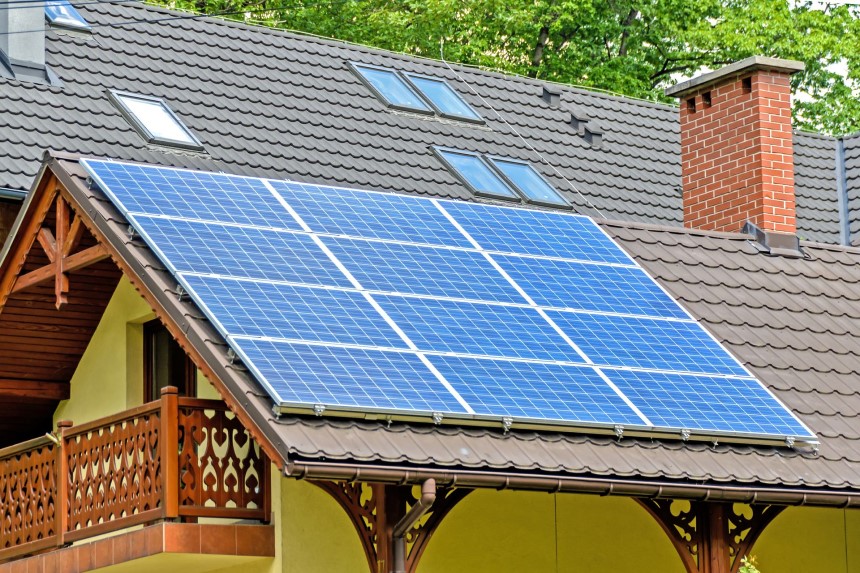 Wiring
WiringThe wiring acts as the link between the solar panel and the controller. It serves as the conduit through which electricity travels.
In these systems, the energy generated by the photovoltaic panel is sent to the charge controller, equipment of the autonomous system responsible for managing the charging of the battery bank. The role of the controller is to optimize this charging and avoid overcharging the batteries, sending energy to those with a lower charge level.
A solar generator system includes a battery – usually lithium or AGM or gel type in economic models – for storing energy thanks to the use of an inverter to convert direct current into alternating current (which is the one used by our appliances).
Yes, you can go off-grid and generate enough energy independently with a solar system. To go off-grid, then you need a battery system which panels can recharge every day. So, as you consume energy during the day, excess energy is stored in the battery so you can stay connected without relying on the grid.
It depends on your needs. There are portable models with dimensions of around 15 x 10 inches which can be stored anywhere and are easy to carry.
When it comes to portable backup solar power solutions, Goal Zero is one of the most popular brands out there. They offer reliable and user-friendly solar power generators, such as the Goal Zero Yeti, which are packed with such advanced features as an ability to control the generator with the Goal Zero Yeti app for their optimal performance.
However, there are non-portable off-grid systems that require space. The solar panels take much of the space but can be installed on the roof or in remote areas for system efficiency and to save space.
There are several reasons why solar options of energy generation are excellent. They offer benefits of little maintenance and safety, clean, silent, and free energy. Let’s take a look at the pros and cons of solar generators when compared to conventional fuel generators:
The main difference between these is that solar generators use free energy from the sun, which is clean and renewable. Conventional generators however are not as eco-friendly. They make noise and generate fumes.
The solar generators offer incredible versatility. They will be an optimal option if you are traveling in a caravan, on a boat. You can use them for camping, at your second home for the weekend, or on your farm as long as you do not connect high-consumption appliances. Of course, if your idea is to have a backup system for your home or the use of large devices, you may be short. The best advice: always calculate your energy needs before purchasing a generator.
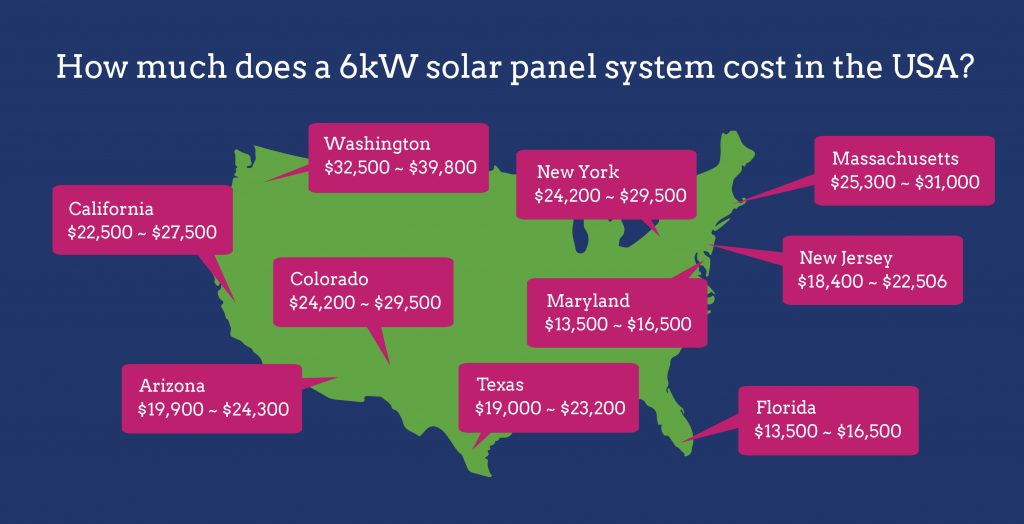
Yes, you can build a solar generator by yourself. To save more cost, you can decide to build your own solar generator, following the DIY route. This way, you can customize it to meet your needs, and you can easily maintain the components without the need for calling in a technician since you know them well and how they work.
Finally, you may be asking the question, “should I get a solar generator?” If you’ve read carefully, you probably already have your answer: it depends. If you move a lot – in your caravan, on a boat, etc. – and you need an extra source of electricity that is clean, quiet, easy to operate, and without complications, a solar generator is an answer to your needs. But think about it carefully. A limited capacity added to the slowness of its recharging – and the need for a sunny day to do so – limits its possibilities as a booster unit in homes, industry, or for consumer appliances. However, we’ve seen what is a solar generator and its numerous advantages. They are ideal for off-grid and on-grid use and can be used in residences, organizations, and industries.
